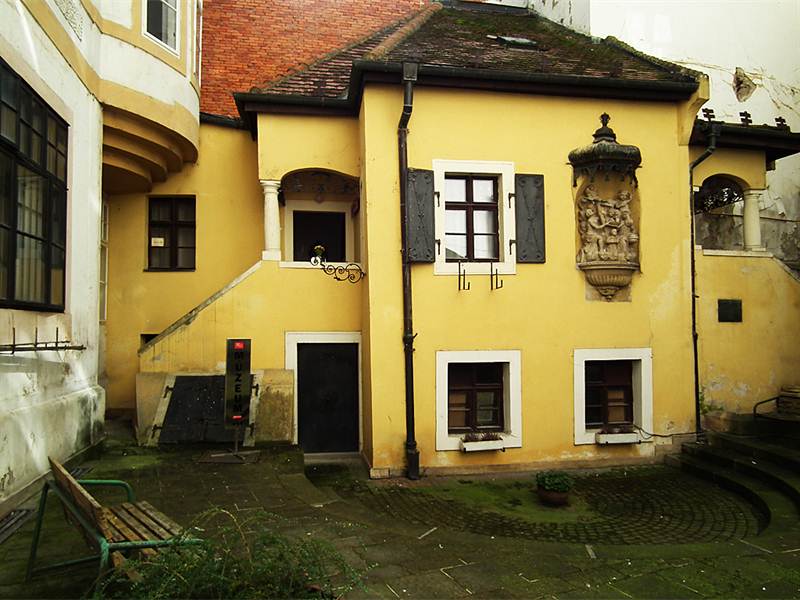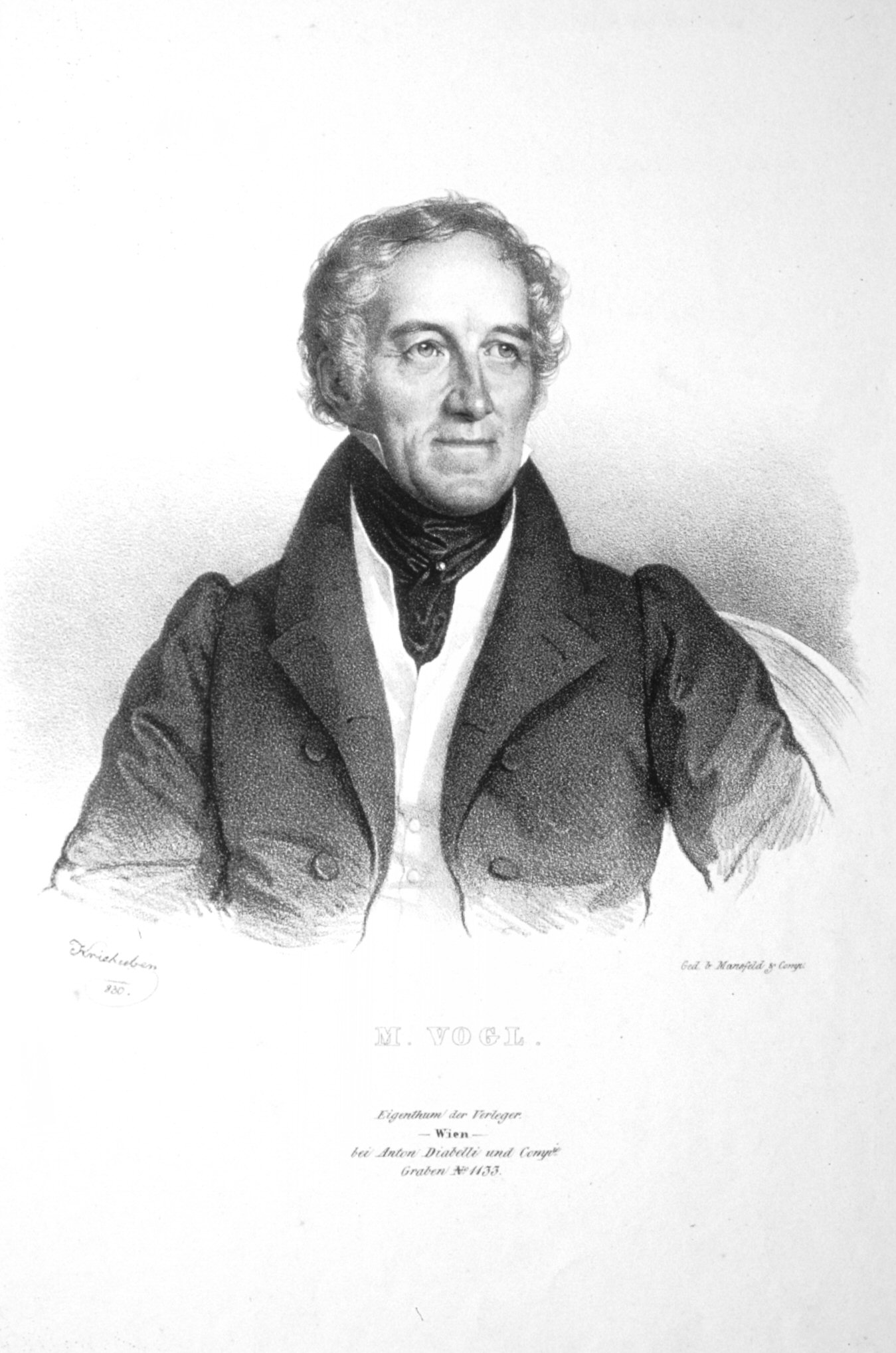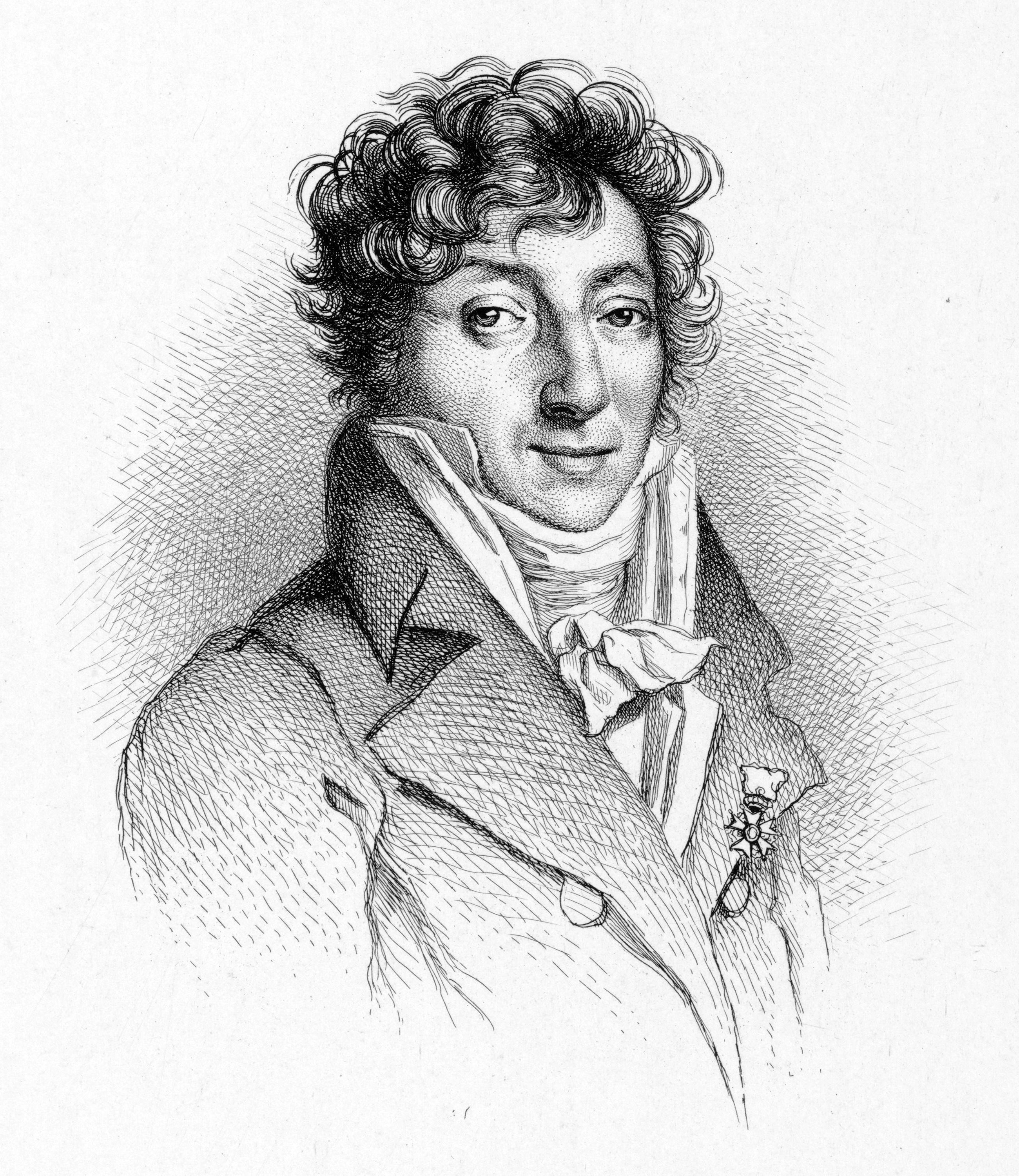|
Cathinka Buchwieser
Katharina Buchwieser (; 24 May 1789 – 9 July 1828) was a German operatic soprano and actress. She was known as Cathinka, and her married surname was Lacsny von Folkusfálva. She appeared at theatres of Vienna, the Theater an der Wien and the Theater am Kärntnertor, then the court theatre. Franz Schubert dedicated compositions to her. Career Born in Koblenz, the daughter of the composer and Kapellmeister Balthasar Buchwieser, she made her debut in 1802 at the Frankfurt Opera as Myrrha in Peter von Winter's ''Das unterbrochene Opferfest''. She certainly sang there in the 1803-04 season. In 1806, she moved to Vienna, where her father became Kapellmeister at the Theater an der Wien. She first appeared at the theatre on 6 December that year as Sesto in Mozart's '' La clemenza di Tito''. She performed regularly at the Kärntnertortheater from 1809. She appeared as the Princess of Navarra in '' Jean de Paris'' by François-Adrien Boieldieu in 1813 at the Theater an der Wien. ... [...More Info...] [...Related Items...] OR: [Wikipedia] [Google] [Baidu] |
Theater An Der Wien
The is a historic theatre in Vienna located on the Left Wienzeile in the Mariahilf district. Completed in 1801, the theatre has hosted the premieres of many celebrated works of theatre, opera, and symphonic music. Since 2006, it has served primarily as an opera house, hosting its own company. Although "" is German for "Vienna", the "" in the name of the theatre is actually the name of the Wien River, which once flowed by the theatre site; "" means "on the banks of the Wien". In modern times, the river has been covered over in this location and the covered riverbed now houses the Naschmarkt, an open-air market. The theatre is operated in cooperation with Vereinigte Bühnen Wien (VBW) which also operates the Raimund Theater and the . History Early history The theatre was the brainchild of the Viennese theatrical impresario Emanuel Schikaneder, who is best known as Mozart's librettist and collaborator on the opera ''The Magic Flute'' (1791). Schikaneder's troupe had already ... [...More Info...] [...Related Items...] OR: [Wikipedia] [Google] [Baidu] |
Die Beiden Kalifen
''Die beiden Kalifen'' (The Two Caliphs) is an 1813 opera in two acts by Giacomo Meyerbeer (or as he was then known, Jacob Meyerbeer), to a libretto by Johann Gottfried Wöhlbruch, based on a tale from the ''Arabian Nights''. The opera, Meyerbeer's second attempt at this genre, was originally titled ''Wirt und Gast, oder Aus Scherz Ernst'' (Landlord and Guest, or The Joke which Became Serious). Under this name it was premiered at the on 6 January 1813, conducted by Conradin Kreutzer.Letellier (1999), 360 Meyerbeer noted in his diary that "I arrived one day before the performance, and was able to supervise two rehearsals, but could do nothing to help really, since in every respect it had been badly and hurriedly prepared. The production was judged as poor by all critical accounts, and the opera was received very tepidly." The local press however reported that the opera "earned a deserved success. The music has striking, genuinely original passages, and the text has been diligentl ... [...More Info...] [...Related Items...] OR: [Wikipedia] [Google] [Baidu] |
Party
A party is a gathering of people who have been invited by a host for the purposes of socializing, conversation, recreation, or as part of a festival or other commemoration or celebration of a special occasion. A party will often feature food and beverages, and often conversation, music, dancing, or other forms of entertainment. Some parties are held in honor of a specific person, day, or event, such as a birthday party, a Super Bowl party, or a St. Patrick’s Day party. Parties of this kind are often called celebrations. A party is not necessarily a private occasion. Public parties are sometimes held in restaurants, pubs, beer gardens, nightclubs, or bars, and people attending such parties may be charged an admission fee by the host. Large parties in public streets may celebrate events such as Mardi Gras or the signing of a peace treaty ending a long war. Types Balls Banquets Birthday party A birthday party is a celebration of the anniversary of the birth of ... [...More Info...] [...Related Items...] OR: [Wikipedia] [Google] [Baidu] |
Ferdinand Hiller
Ferdinand (von) Hiller (24 October 1811 – 11 May 1885) was a German composer, Conductor (music), conductor, pianist, writer and music director. Biography Ferdinand Hiller was born to a wealthy Jewish family in Frankfurt am Main, where his father Justus (originally Isaac Hildesheim, a name that he changed late in the 18th century to conceal his Jewish origins) was a merchant in English textiles – a business eventually continued by Ferdinand's brother Joseph. Hiller's talent was discovered early and he was taught piano by the leading Frankfurt musician Alois Schmitt, violin by :de:Jörg Hofmann (Violinist), Jörg Hofmann, and harmony and counterpoint by Georg Jacob Vollweiler; at 10 he performed a Mozart concerto in public; and two years later, he produced his first composition. In 1822, the 13-year-old Felix Mendelssohn entered his life. The Mendelssohn family was at that time staying briefly in Frankfurt and the young Hiller visited them where he was immensely impressed by ... [...More Info...] [...Related Items...] OR: [Wikipedia] [Google] [Baidu] |
Johann Nepomuk Hummel
Johann Nepomuk Hummel (14 November 177817 October 1837) was an Austrian composer and virtuoso pianist. His music reflects the Transition from Classical to Romantic music, transition from the Classical period (music), Classical to the Romantic music, Romantic musical era. He was a pupil of Mozart, Salieri and Muzio Clementi, Clementi. He also knew Beethoven and Schubert. Life Early life Hummel was born as an only child (which was unusual for that period) in Pressburg, Kingdom of Hungary (now Bratislava, Slovakia). He was named after the Czech patron saint John of Nepomuk. His father, Johannes Hummel, was the director of the Imperial School of Military Music in Vienna; his mother, Margarethe Sommer Hummel, was the widow of the wigmaker Josef Ludwig. The couple married just four months beforehand. Hummel was a child prodigy. At the age of eight, he was offered music lessons by the classical composer Wolfgang Amadeus Mozart, who was impressed with his ability. Hummel was taught ... [...More Info...] [...Related Items...] OR: [Wikipedia] [Google] [Baidu] |
Johann Michael Vogl
Johann Michael Vogl (August 10, 1768 – November 19, Michael Lorenz: ''Studien zum Schubertkreis'', Phil. Diss. Vienna, 2001 1840), was an Austrian baritone singer and composer. Though famous in his day, he is remembered mainly for his close professional relationship and friendship with composer Franz Schubert. Vogl was born in Steyr. As a young man he enrolled at the ''Gymnasium'' at Kremsmünster, where he studied languages, philosophy, and sang in several musical productions by his friend Franz Süßmayr (the same man who completed Mozart's ''Requiem''). In 1786 Vogl went to Vienna to study, and later to practice law. In 1795 he debuted at the Vienna Hofoper, and quickly attracted a following for both his acting capability and the beauty of his voice. In 1813, Franz Schubert attended a performance of Gluck's '' Iphigénie en Tauride'' in which Vogl sang the role of Orestes; Schubert never forgot the experience and determined to write for Vogl. The following year, whe ... [...More Info...] [...Related Items...] OR: [Wikipedia] [Google] [Baidu] |
Moritz Schwind – Der Fischer (Goethe)
Moritz is the German equivalent of the name Maurice. It may refer to: People Given name * Saint Maurice, also called Saint Moritz, the leader of the legendary Roman Theban Legion in the 3rd century * Prince Moritz of Hesse (2007), the son of Donatus, Prince and Landgrave of Hesse * Prince Moritz of Anhalt-Dessau (1712–1760), a German prince of the House of Ascania from the Anhalt-Dessau branch * Moritz, Landgrave of Hesse (1926), the head of the House of Hesse, pretendant to the throne of Finland, son of Prince Philip, Landgrave of Hesse * Moritz, Prince of Dietrichstein (1775–1864) * Moritz Becker, American politician * Moritz Benedikt (1849–1920), Jewish-Austrian newspaper editor * Moritz Borman, film producer * Moritz Michael Daffinger (1790–1849), Austrian miniature painter and sculptor * Moritz Duschak (1815–1890), Moravian rabbi and writer * Moritz Schlick, German philosopher and physicist * Moritz von Schwind, Austrian painter * Moritz Steinla (1791 ... [...More Info...] [...Related Items...] OR: [Wikipedia] [Google] [Baidu] |
Ferdinánd Pálffy
Count Ferdinánd Pálffy de Erdőd (1 February 1774 – 4 February 1840) was a mining engineer and civil servant of the Austrian Empire who is better remembered for his role in managing the Theater an der Wien, Vienna, in pursuit of which he lost his not inconsiderable fortune and retired from his creditors in Vienna. Life Born in the Habsburg residence Vienna the son of Count Lipót Pálffy de Erdőd (1739–1799), he was a distant relative of the Imperial field marshal and Hungarian palatine János Pálffy (1664–1751). He attended the mining institute at Schemnitz, Hungary (now Banská Štiavnica, Slovakia) from 1794 to 1796, where he remained in government service before returning to Vienna in 1806 to work in the Austrian ministry of mines. In 1807 Pálffy was among the association of court nobles that acquired the Theater an der Wien, as well as the leases of the other two theatres patronised by the court, the Burgtheater and the Theater am Kärntnertor. By degree ... [...More Info...] [...Related Items...] OR: [Wikipedia] [Google] [Baidu] |
Aline, Reine De Golconde
''Aline, reine de Golconde'' (‘Aline, Queen of Golconda’) is an opera (ballet-héroïque) in three acts by Pierre-Alexandre Monsigny to a libretto by Michel-Jean Sedaine based on a story by Stanislas-Jean de Boufflers. It was first performed in the Salle des Machines in Paris on 15 April 1766. Action The action takes place in India, where queen Aline recognises the newly arrived ambassador Saint Phar as her long lost lover from a time when she was a mere peasant girl. She disguises herself as a shepherdess and meets Saint Phar before leaving him again to test his love. Resuming her role as queen, she offers herself in marriage to Saint Phar, who declines because he loves the shepherdess. The true identity of the shepherdess is then revealed, and the lovers reunited. Reception Although Monsigny had previously written light operas, ''Aline'' was his first and only grand opera. The ''Journal historique'' gave the work a damning review, saying that Sédaine's libretto lacked ... [...More Info...] [...Related Items...] OR: [Wikipedia] [Google] [Baidu] |
Henri-Montan Berton
Henri-Montan Berton (17 September 1767 – 22 April 1844) was a French composer, teacher, and writer, mostly known as a composer of operas for the Opéra-Comique. Career Henri-Montan Berton was born the son of Pierre Montan Berton.Charlton 2001."Henri-Montan Berton" in Sadie 1992, vol. 1, pp. 453–455. He is principally remembered as a composer of operas, most of which were first performed at the Opéra-Comique. Riding a wave of anti-clericalism which arose at the time of the French Revolution, his first real success was with ''Les rigueurs du cloître'' (23 August 1790), "in which a young nun is saved from entombment at the hands of a corrupt mother superior." The work has been described as the first rescue opera. Later more notable operas include ''Montano et Stéphanie'' (15 April 1799), ''Le délire'' (7 December 1799), and ''La Romance'' (26 January 1804). One of his greatest early successes was ''Aline, reine de Golconde'' (3 September 1803), which was performed in ... [...More Info...] [...Related Items...] OR: [Wikipedia] [Google] [Baidu] |
Leonora (opera)
''Leonora, ossia L’amore coniugale'' (''Leonora or Conjugal Love'') is an opera (specifically a ''dramma semiserio'') in two acts by the Italian composer Ferdinando Paer. The libretto, by Giovanni Schmidt, is based on '' Léonore, ou L’amour conjugal'' (1794) by Jean-Nicolas Bouilly, which was also the source of Beethoven's ''Fidelio''. Beethoven himself owned a score of Paer's opera and it is believed to have had some influence on his work. ''Leonora'' was first performed at the Kleines Kurfürstliches Theater, Dresden, on 3 October 1804 with the composer's wife singing the title role. Roles Synopsis Leonora disguises herself as a man in order to infiltrate the prison where her husband, Florestano, is being held by his enemy, Don Pizarro. She fools the jailer Rocco into giving her a job. When Don Pizarro hears of the imminent arrival of the governor, Don Fernando, he orders Rocco to execute Florestano. Leonora accompanies Rocco to the underground cell where Florestano is bein ... [...More Info...] [...Related Items...] OR: [Wikipedia] [Google] [Baidu] |
Camilla (opera)
Camilla may refer to: People * Camilla (given name), including a list of people with the name ** Camilla, Queen Consort (born 1947), wife of King Charles III Places * Camilla, Georgia, a city in the United States * Camilla Castle, an alternative name for Hallyards Castle in Scotland Arts and entertainment * Camilla (mythology), daughter of King Metabus and Casmilla in Roman mythology * ''Camilla'' (1994 film), a 1994 comedy film * ''Camilla'' (1954 film), a 1954 comedy film * ''Camilla'' (Burney novel), a 1796 novel by Frances Burney (mentioned in Jane Austen's novel ''Northanger Abbey'') * '' Camilla Dickinson'', a.k.a. ''Camilla'', a novel by Madeleine L'Engle * '' Camilla'', a 1706 opera by Giovanni Bononcini * ''Camilla'' (opera), 1799 opera by Ferdinando Paer * ''Camilla'' (Fioravanti), 1801 opera by Valentino Fioravanti * '' Il trionfo di Camilla'', a 1696 or 1697 opera by Giovanni Bononcini * "Camilla", a song by Basshunter from '' Now You're Gone – The Album ... [...More Info...] [...Related Items...] OR: [Wikipedia] [Google] [Baidu] |






